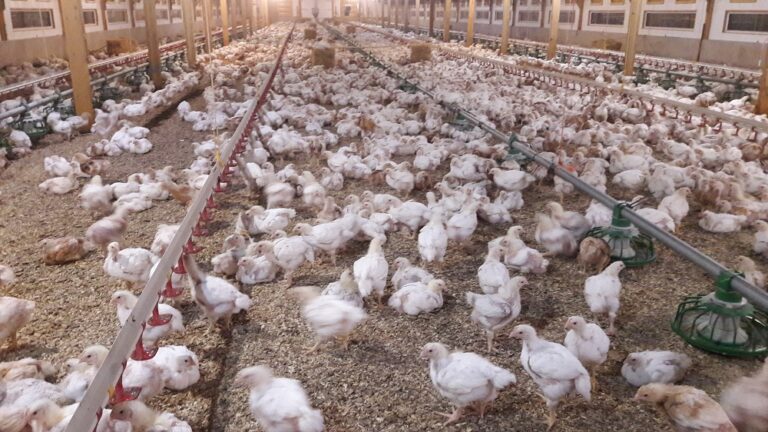Dr Alexandra McDaniel, MRCVS. Boehringer Ingelheim Animal Health, Avian Veterinary Advisor
As with any routine process there is always the risk that vaccination can start to become ‘a procedure that just has to be done’ and poor practice may sneak in. Considering the significant time and financial commitment apportioned to vaccination, it is crucial the full benefit of this investment is realised.
However, are you doing everything you can to get the most out of vaccination on farm? What are you expecting from your vaccines and is this realistic?
The purpose of vaccination is to ‘teach’ the immune system to effectively and quickly recognise and fight the infection in question. The negative effects, normally associated with the pathogen such as an egg production drop, are therefore significantly reduced; shedding may be reduced and the disease may be eliminated at a faster rate compared to unvaccinated birds.
With the increasing pressure to reduce antimicrobial use in production animals, a well-targeted and implemented vaccination programme can reduce the requirement for antibiotic treatments and support optimal bird health, welfare and therefore performance. However, vaccination can never guarantee 100% protection against a pathogen; it must be implemented in parallel with optimal nutrition, management, genetics, biosecurity and hygiene. A vaccine cannot be expected to be a panacea for all ills.
Many factors influence the success of a vaccine, including storage, handling, reconstitution, the act of vaccinating and the health status of the birds.
Vaccine storage on farm: incorrect storage conditions such as temperature fluctuations or incorrect temperature can render a vaccine ineffective.
Vaccination dose and route of administration: inappropriate dosage or route of administration can have a negative impact on vaccine efficacy. Check whether the vaccine is administered by injection, a spray system or via the drinking water.
Vaccination technique: check the dilution rate and your calculations; incorrect stock solution calculations can result in not all birds getting the required dose. Poor reconstitution technique may mean the vaccine is ineffective before it even reaches the birds. The concurrent use of water sanitiser at the time of vaccination via the drinking water is another example of situations where live vaccine can be irreversibly damaged or deactivated.
Concurrent vaccine administration: some vaccines designed to protect against different diseases should not be given at the same time, as one vaccine may ‘out compete’ the other.
Bird factors: Stress to the birds at the time of vaccination can mean that they are not capable of mounting the usual immune response to vaccination.
Bird health: the ability of your flock to mount an immune response to the vaccination is compromised if their immune system is already fighting disease. Only healthy birds should be vaccinated.
Suboptimal environmental, nutritional or management conditions: poor stocking density, ventilation, lighting, feed or drinking water can all cause stress. Stress hormones affect a bird’s ability to produce an appropriate immune response.
Age of bird at the time of administration: this is usually to do with vaccine interactions with the maternally derived antibodies (MDA) present within the bird, and is relevant for a number of diseases such as infectious bursal disease (IBD/Gumboro). The end objective is to minimise the ‘immunity gap’ between MDA decline and a chick mounting its own immune response.
In summary, the ability to mount an effective and appropriate immune response is crucial in ensuring optimal flock health, welfare and performance. Given the substantial economic and time cost to this process it makes sense to regularly monitor and review your storage, handling and vaccination processes to ensure you, as the producer, are getting the most out of vaccination on farm. An integral part of preventative healthcare is vaccination, but in isolation, this cannot be relied upon to protect your flock from disease. Good vaccination processes go hand in hand with good husbandry, hygiene and biosecurity to maximise your return on investment.


